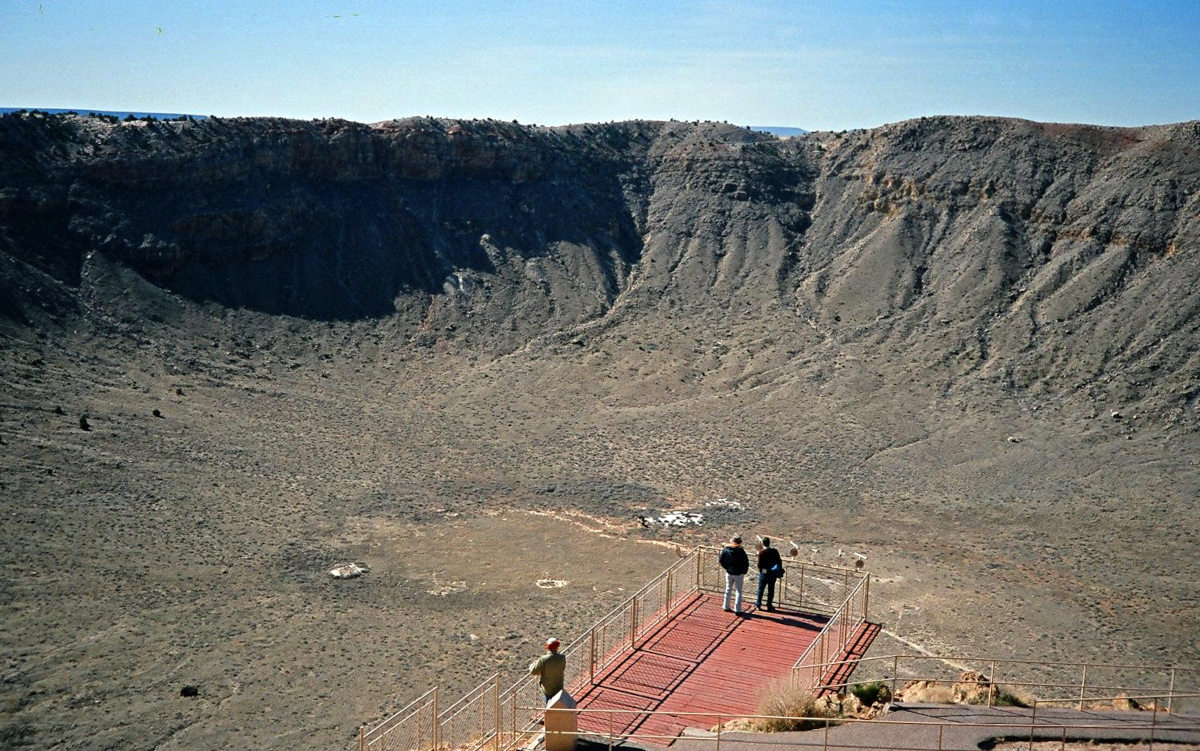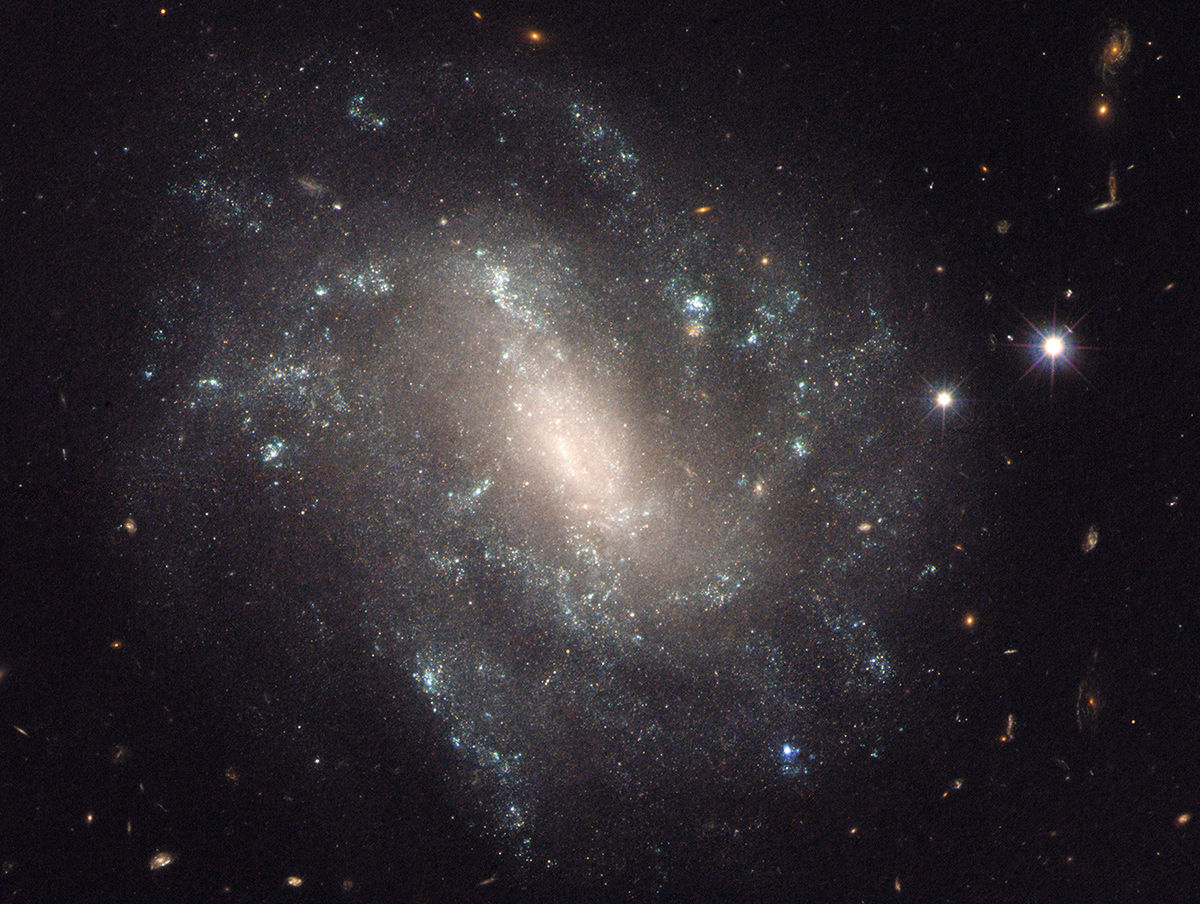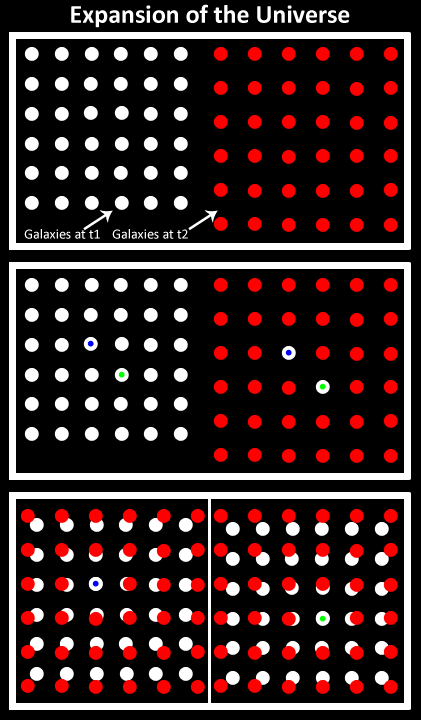Well, it’s not quite like being hit by a meteor that destroys the earth, but it’s pretty close to it.

We just elected a cult leader who landed enough hateful and hegemonic messages to enough voters to win the electoral votes by 312-226. (Note: Trump’s margin was less than 2%, and he received less than 50% of the vote, llinois was the only blue state on the electoral map between the coasts, and the total margin of victory in the swing states was about 700,000.) Still, we can no longer pretend who we are or who we have become.
We can no longer pose as a beacon of hope and light for the world. We have simply joined the club of collapsed empires throughout history.
Hopefully, we have learned that clever and condescending marketing is never as effective as clear leadership on vision, values, and priorities.

In these crazy times, I thought it might be helpful to step back and embrace a perspective that enables us to see our own arc of life in the context of the arc of history and the arc of the universe. To be clear, I’m not in the camp that believes since he didn’t create too many lasting problems in round 1, there won’t be any major disasters in round 2.

Let’s start with the largest context. We live in a universe with a 14-billion-year mystery story about its origins. What science tells us is that our universe has continued to expand over billions of years and, in so doing, has reduced even mighty galaxies to mere dots of light. In a recent NYT article, Paul Sutter, a theoretical cosmologist, discusses the experience of gazing into that vast void. He suggests that our choice is to be recoiled by the nothingness or illuminated by the facts surrounding our unique cosmic experience. Our essential choice is to be inspired by the overwhelming awe and wonder of the universe and to find meaning in its unfolding emptiness or to be immobilized by our fear and sense of insignificance. To me, the biggest takeaway is that mysterious forces somehow shape all evolution. Now that’s a perspective to consider.
The arc of the universe simply provides the broadest possible perspective for our current crisis.
I’m fairly confident, as a reader of this blog, that you are reeling from the results of the election. How could a convicted criminal flaunting toxic masculinity win in America? I guess we learned that there are more angry men in the country than we imagined. I’m not sure we learned or can acknowledge that Trump won because he understood who America is and who it has become better than the Democrats.
I’m writing this post in an admittedly feeble attempt to provide a little perspective on how this particular moment fits into the arc of our tiny earth’s history in the arc of the universe—a mere 4 billion years of the universe’s 14 billion. And, of course, to consider how we have evolved in the arc of humans’ 300,000 year history of this planet. Nothing like starting each day with a little perspective. But back to the present.
The first person I read each morning is Heather Cox Richardson. In a letter she wrote on November 3, she reminded us of the 1850’s and 1860’s in which we witnessed the Missouri Compromise, the Kansas Nebraska Act, the Dred Scott decision, the Civil War, and the Emancipation Proclamation. During that period, we saw, among other things, the divides personified by Lincoln on the one hand and James Hammond on the other—one fighting for democracy and equality, the other defending oligarchy and supremacy. In the midst of all that chaos, Emily Dickinson was quietly writing her poetry. As a quick reminder of those decisions and events, here is a very brief recap:
The Missouri Compromise, a federal law passed in 1820, admitted Missouri as a slave state and Maine as a free state, prohibited slavery in the Louisiana Territory, and maintained a balance of power in Congress between free and slave states. It was repealed in 1854 by the Kansas-Nebraska Act, and in 1857, the Supreme Court, in one of its worst decisions in history, ruled it unconstitutional by its Dred Scott order. In that case, the court held that the U.S. Constitution did not extend American citizenship to people of black African descent, and therefore they could not enjoy the rights and privileges contained therein. The decision played a crucial role in the start of the Civil War when, in 1861, Southern troops bombarded Fort Sumter in South Carolina (an event brilliantly documented by Eric Larson in Demons of Unrest). In 1863, after two years of bloody battle, President Lincoln issued the Emancipation Proclamation, a military decree declaring all enslaved people in rebellious areas of the United States to be free. Whew, that’s a lot of history in a short amount of time.
Fast forward 100 years later, and Doris Kearns Goodwin, in her book An Unfinished Love Story, brilliantly recaps the events of the 1960s and 1970’s. In this book, she describes the dramatic events surrounding JFK, LBJ, MLK, and RFK. Here is a quick refresher of the legislative decisions these courageous leaders influenced:
- Civil Rights:
- Civil Rights Act of 1964: Outlawed discrimination based on race, color, religion, sex, or national origin, ending segregation in public places and employment.
- Voting Rights Act of 1965: Aimed to overcome legal barriers at the state and local levels that prevented African Americans from exercising their right to vote under the 15th Amendment.
- Fair Housing Act of 1968: Prohibited discrimination concerning the sale, rental, and financing of housing based on race, religion, national origin, and later sex, disability, and family status.
- Great Society & War on Poverty:
- Economic Opportunity Act of 1964: Established programs like Head Start, Job Corps, and VISTA to fight poverty.
- Social Security Act Amendments of 1965: Created Medicare and Medicaid, providing health insurance to the elderly and the poor.
- Elementary and Secondary Education Act of 1965: Provided federal aid to public schools, particularly those in low-income areas.
- Higher Education Act of 1965: Increased federal money to universities, created scholarships and loans for students.
- Older Americans Act of 1965: Established a network of Area Agencies on Aging to coordinate and provide services for older adults.
- Environmental Protection:
- National Environmental Policy Act of 1969: Created the Environmental Protection Agency (EPA) and required environmental impact statements for federal projects.
- Clean Air Act of 1970 & Amendments (1977): Set national air quality standards and regulated emissions from stationary and mobile sources.
- Clean Water Act of 1972: Established the basic structure for regulating pollutants discharged into the waters of the United States.
- Endangered Species Act of 1973: Provided for the conservation of species that are endangered or threatened throughout all or a significant portion of their range, and the conservation of the ecosystems on which they depend.
- Consumer Protection & Safety:
- Consumer Product Safety Act of 1972: Established the Consumer Product Safety Commission to protect the public from unreasonable risks of injury associated with consumer products.
- Fair Credit Reporting Act of 1970: Promoted the accuracy, fairness, and privacy of consumer information contained in the files of consumer reporting agencies.
- Equal Credit Opportunity Act of 1974: Made it unlawful for any creditor to discriminate against any applicant, with respect to any aspect of a credit transaction, on the basis of race, color, religion, national origin, sex, marital status, or age.
- Other Significant Legislation:
- Occupational Safety and Health Act of 1970: Established the Occupational Safety and Health Administration (OSHA) to ensure safe and healthful working conditions for workers.
- Title IX of the Education Amendments of 1972: Prohibited discrimination on the basis of sex in education programs or activities receiving federal financial assistance.
The list is not exhaustive, but it highlights some of the most impactful legislation passed during the 60s and 70s. These laws significantly expanded the role of the federal government in addressing social and economic issues, protecting civil rights, and promoting environmental and consumer protection. Again, In the midst of all this change, poets like Langston Hughes, Rob McKuen, Bob Dylan, Amiri Baraka, Quincy Jones, and Sylvia Plath gave voice to the heartbreak and suffering going on during those years. With the right leaders, sufficient alignment, and inspirational poets among the population, progress is possible.
So, here we are. As we once again experience the painful polarization in our country, we find ourselves living in deep divides between red states and blue states. In a recent article in the NYT series Upstart, we see those differences expressed in our interests, our religions, our shopping habits, and our leisure activities. Liberals tend to live in urban areas and frequent Starbucks, cocktail bars, and comedy clubs; conservatives tend to live in rural areas and are more likely to visit gun shops and taxidermists. Liberals are more likely to be Buddhist or Hindu; conservatives are more likely to be Baptist or Mormon. It is more likely that Liberals will shop at Lululemon, whereas conservatives are more likely to shop at general stores. Liberals tend to prefer vacations in ski resorts; conservatives are more likely to live near golf courses and go to rodeos. In the midst of these stark divides, Amanda Gorman, Joy Harjo, Mary Oliver, Rebecca Solnit and other artists continue to shine a bright light in all this darkness.
Yes, I’m making three points here:
One, the context and time in which we live, learn, love, and work exert huge impacts on our behaviors and beliefs.
Two, poetry and the arts have always played a big role in giving us perspective and hope for elevated possibilities.
And three, the issues we are facing now, no matter how heinous and horrendous, are a mere blip on the arc of the 4 billion year history of Planet Earth, and there is always hope that, over time, positive change can occur.
As Martin King implored us, “the long arc of the moral universe still bends toward justice.” I’m hanging onto the hope that he was right.
As we face this moment, it’s important to remember that it took the United States almost 200 years before it granted women and minorities the full rights of citizenship. A real democracy did not even begin until 1965. And let’s not forget that America is still in its infancy. The battle between oligarchy and democracy has been a recurring theme throughout history. The balance of power has shifted many times, as has the rule of the many vs. the rule of the few. Here are a few examples:
- Ancient Greece: The birthplace of democracy, Athens, also saw periods of oligarchic rule. The Peloponnesian War, in part, reflected this struggle, with democratic Athens clashing against oligarchic Sparta.
- Roman Republic: While having democratic elements, the Republic was also characterized by the influence of powerful patrician families, creating an oligarchic tendency within the system.
- Italian City-States: Many cities like Venice and Florence experimented with republican forms of government but often fell under the control of wealthy merchant families or powerful individuals, leading to oligarchic rule.
- Feudal Europe: Power was largely decentralized and held by a small number of nobles, creating an inherently oligarchic system.
- Rise of Republics: The Enlightenment and revolutions in America and France challenged the dominance of monarchies and gave rise to new republics with democratic ideals. However, the early American republic, for example, had limited suffrage and significant power held by landed elites.
- Industrial Revolution: The rise of industrial capitalism led to the concentration of wealth and power in the hands of a few, creating new forms of oligarchy.
- 20th Century: The rise of totalitarian regimes like Nazi Germany and the Soviet Union presented a different type of oligarchy, with power concentrated in the hands of a single party or leader.
- Post-Cold War: The fall of communism led to a wave of democratization, but many countries continue to struggle with corruption and the influence of powerful elites, leading to concerns about “oligarchic capture” of democratic institutions.
- Economic Inequality: The growing gap between the rich and the poor in many countries has fueled concerns about the influence of wealth on politics, creating conditions for oligarchic tendencies to emerge.
- Technological Disruption: The rise of social media, AI, and other technologies has created new challenges for democracy with concerns about misinformation, polarization, and the erosion of trust in institutions.
Yes, the battle between democracy and oligarchy is ongoing and complex. While democracy has made significant strides, oligarchic forces continue to exert influence in various forms. The future of democracy depends on addressing the challenges of economic inequality, political polarization, and technological disruption and ensuring that power remains in the hands of the many, not the few.
Now the big questions. How does the arc of our life fit into the arc of earth’s history in the arc of the history of the universe? And, after this stunning and sickening defeat, what choices do we make right now about who we are? Finally, and most importantly, what does a plausible vision of thriving progressive society look like—one that restores hope, dignity, and trust?
As I approach 80, I am cognizant of how much I have changed and how much the world has changed over the span of my life.
In 1970, there were 3.6 billion people. Now there are 8.2 billion, 60% of whom were born after 1970.
As I was reflecting on this post, it struck me that more than half the world wasn’t even alive during the tumult of the 1960’s and 1970, and there is no one alive today who experienced what happened before and after the Civil War. While people in my generation were defined by the 60’s, young people today—our future leaders—do not share that experience.
I am also struck by the fact that I’m a very different person than I was in 1960. The Vietnam War changed my perspective. Being married for over 50 years caused me to make some self-corrections in my assumptions, beliefs, and behaviors. Having children and grandchildren completely changed my view of what’s most important. Hopefully, having been immersed in the writing and music of brilliant authors, poets, and playwrights gave me a new appreciation for how important the arts are in our lives. As I reflected upon what dominated my life in each decade, I came up with two words that seemed to capture each period of my life:
First decade: Family and play
Second decade: Friends and sports
Third decade: Love and war
Fourth decade Career and kids
Fifth decade: Travel and growth
Sixth decade: Security and retirement
Seventh decade: grandchildren and leadership
Eighth decade: Writing and music
What words would you have chosen for each decade you have lived?
So here we are—facing the first days of our new reality. How can we start each day with a new purpose, find a little light in our own lives, and bring a little light to the lives of others?
I started this post by citing Heather Cox Richardson’s letter on November 3. Let me end it by recommending Ezra Klein’s podcast with Jon Stewart also on November 3. At the end of the interview, Stewart remembers the writing and impact of Kurt Vonnegut, whom I read over 50 years ago. He describes him as a hopeful and heartbroken man. I don’t know about you, but that’s how I’m feeling right now. I’m heartbroken by the state of this country, but still hopeful that we can find a path forward that doesn’t include violence and further division.
I’m hoping we can somehow see this election as a mere blip in the history of the universe, the planet Earth, and our own lives. I’m hoping that, after we mourn this moment, we will search for new meaning in each new morning. Finally, I’m hoping we will renew our focus on developing tomorrow’s leaders, lending light in this darkness, and loving the people we care about more generously than ever. May it be so.
Also published on Medium.


You’re the best Ricky! Thank you!
Rick,
I appreciate your writing. Two observations: A switch of about 125,000 votes in MI, WI and PA would have allowed Harris 270 electoral votes. The national vote totals have trump up by about 2%. Hardly landslide results. But, yes, difficult days ahead. I recommend daily walks in your favorite Conservancy Preserves
John,
Thanks for your comment. You are right that the margins were small and are currently narrowing as new votes come in. The electoral map showing only Illinois as blue in all of middle America is a bit chilling. We have the blue coasts and red middle although, again, I understand that no state is monolithic.
Thanks, Rick — so helpful!! Agree with John B that nature is a wonderful balm!
Hi Terrie,
Thanks for your comment. Yes, we are so lucky to have so many nature baths readily available.
Rick
[…] a recent post, I discussed the importance of the arts and poetry in helping us navigate difficult situations. In this post, I started with a poem I wrote to my […]